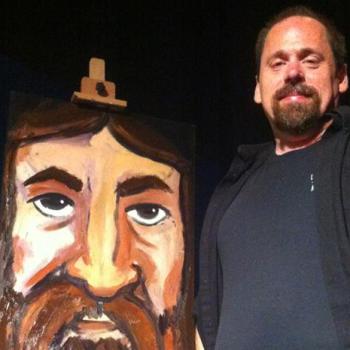
It should surprise no one, to hear that Jesus is immensely creative. In John 1:3 (ESV), we read, “Through him all things were made; without him nothing was made that has been made. ” In other words every natural thing we see in the world is the result of His handiwork. Every beautiful thing is the work of His hands. As an artist and a writer, I have become increasingly impressed by the pictures we see Him paint with words—especially the way He “illustrates” His points with the amazing stories we call “parables.” Jesus is truly a Master Storyteller. To be sure there is a purpose in the parables.
Actually There Are Two Purposes in the Parables…
Yes, that’s right, there are two purposes in the parables, and which one is used is determined by the heart of the hearer. For those who are open hearted and wanting to learn, the parables are simple stories Jesus used to help believers to understand something that may be complicated. They are illustrations Jesus used to make a point and, in many cases to drive that point home in the heart and mind of the hearer. While some people may disagree with this point, I am of the belief that they are not true stories. Rather they are stories, often taken from the every day experiences of the people in that time, that are crafted to reveal great spiritual truths. That being said there is another purpose.
The Other Purpose of the Parables
The other purpose in the parables will seem disconcerting at first glance, or at least it did to me. This purpose is first revealed in the Parable of the Sower in Matthew 13. After teaching in the parable, a parable about a farmer sowing his seed, used to illustrate how people receive the Word of God, the disciples came to Jesus and asked why He was teaching in stories. Jesus gave an answer, that seems totally counterintuitive.
“Why do you speak to the people in parables?”
It’s a legitimate question. Up to this point, Jesus had been forthright and plain spoken, saying what He meant, meaning what he said, but now something different was happening. As we’ll see in a minute, even Jesus closest followers were struggling to understand. Keep that in mind. We’ll get back to it.
Jesus’ Answer as to Why He Spoke in Parables
Jesus’ answer to them had to have been almost equally confusing. Matthew 13:11-12 (ESV) He replied, “Because the knowledge of the secrets of the kingdom of heaven has been given to you, but not to them. Whoever has will be given more, and they will have an abundance. Whoever does not have, even what they have will be taken from them.” Well that hardly seems fair, yet we know Jesus is anything but unfair. He continued Matthew 13:13 (ESV) This is why I speak to them in parables: “Though seeing, they do not see; though hearing, they do not hear or understand. This is more than just an answer, it is…
The Fulfillment of Prophecy
In verse 14 and 15 Jesus continues the thought by pointing to the the prophecy of Isaiah: “You will be ever hearing but never understanding; you will be ever seeing but never perceiving. For this people’s heart has become calloused; they hardly hear with their ears, and they have closed their eyes. Otherwise they might see with their eyes, hear with their ears, understand with their hearts and turn, and I would heal them.” So then the other purpose of the parables is so some people would not understand them, turn to the Lord and be saved? Why would Jesus speak that? The short answer is it’s the fulfillment of prophecy, which begs another question. “Why would Isaiah prophesy that?” Simply put, because it’s true.
Hardened Hearts
The reason for this prophecy is simple. Some people will harden their hearts to God’s truth. Jesus told as much in the parable. The parable speaks to a sower, who represents those who share the Word of God, which is represented by the seed. The sower is casting his seed on four different kinds of soil. The first seed falls on the path. The path is very hard, and so when the seed hits it, it can’t take root and germinate. It simply bounces off and is eaten by birds. Jesus is saying this is what happens with hard hearts. In His explanation of the parable, He states of these hard hearted recipients, Matthew 13:19 (ESV) “When anyone hears the message about the kingdom and does not understand it, the evil one comes and snatches away what was sown in their heart. This is the seed sown along the path.”
The Inciting Incident
It’s not that these people were incapable of understanding. They simply refused to understand. The inciting incident for this parable will help the reader to understand. In Matthew 12:22-24 (ESV) we read, “Then they brought him a demon-possessed man who was blind and mute, and Jesus healed him, so that he could both talk and see. All the people were astonished and said, “Could this be the Son of David?” [that is, the Messiah] But when the Pharisees heard this, they said, “It is only by Beelzebul, the prince of demons, that this fellow drives out demons.” The Pharisees saw a great miracle of God and attributed it to Satan, because they did not want to believe. Jesus showed them an amazing miracle, and they rejected it. That reflects a cold, hard, heart, unwilling to receive the truth. Jesus is saying those who refuse to understand will not understand.
Open Hearts
By way of contrast, look at the Disciples. They didn’t understand the parable either, but theirs was simple ignorance. It’s the same as it is for all of us who come up against something we don’t understand, but want to. To them Jesus patiently explains what the parable means. They wanted to understand, and He wanted them to understand. He still does. In a way, it all comes back to a verse from the Old Testament. Jeremiah 29:13 (ESV), “You will seek me and find me when you seek me with all your heart.” When we seek Him, we will find Him, because He wants to be found.
Softened for Truth
As we draw near to Him, our hearts are softened until they become “good soil,” ready to receive the seed of His Word and yield a harvest. Matthew 13:23 (ESV) “But the seed falling on good soil refers to someone who hears the word and understands it. This is the one who produces a crop, yielding a hundred, sixty or thirty times what was sown.”
Evangelism?
So if some hearts are too hard to receive, is evangelism pointless? I don’t think so. First because Jesus told us to go and make disciples, and before we can make disciples, people have to be reached. I think maybe we need to carry the farming metaphor of this parable further. In farming, before the seed is planted, the soil must first be prepared. Similarly before we can sow the Word of God, hearts must be prepared. In John 6:44 (ESV), Jesus reminds us, “No one can come to me unless the Father who sent me draws them, and I will raise them up at the last day.” If this is the case, and it is, then prayer must precede evangelism. Before we go out and sow the seed of the Word, we must ask God to prepare hearts to receive it.
Seek Understanding
If you find yourself reading a parable, or any other Scripture and not understanding it, don’t worry, you’re in good company. Some seem painfully clear, while others will seem desperately murky. What matters is not whether or not you understand, but whether or not you want to. Jesus is the master storyteller, and for the open hearted, these parables are designed to be understood. That is the purpose of the parables for the open hearted. Keep seeking, and studying until you do understand. Take heed to the words of Jeremiah once again, “You will seek me and find me when you seek me with all your heart.” Seek understanding until you understand, and keep seeking Him. He will not let you down.














